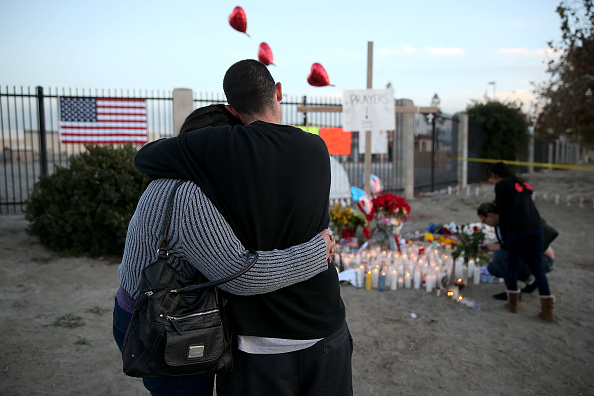The danger of certainty
Opinions and policies should change in response to new evidence. But they usually don't.


A free daily email with the biggest news stories of the day – and the best features from TheWeek.com
You are now subscribed
Your newsletter sign-up was successful
"When the facts change, I change my mind. What do you do, sir?" Though this quote is often attributed to John Maynard Keynes, its provenance is uncertain. There's no question, however, about its instructive value. The world is confoundingly complex, and will make a fool of anyone who ignores contrary new information. But with our country so politically polarized, the process of adjusting to new facts — so essential to sound public policy — rarely occurs. The mass shooting in San Bernardino last week should have served as a challenge to all prevailing assumptions about ISIS, domestic terrorism, and gun-control laws. Yet partisans and presidential candidates immediately seized on the shootings as proof of what they already knew: We need to ban assault rifles. No, we need to ban all Muslim immigrants. We should send 20,000 or more ground troops to wipe out ISIS as soon as possible. No, a U.S. ground force in Syria is exactly what ISIS wants. And so on.
Every news event now triggers a ritualized dance of the same, hardened opinions. In the outrage machine of partisan TV networks, talk radio, Twitter, and blogs, any reconsideration of past views and policies is greeted with derisive jeering, as if it were proof of weakness and failure instead of sanity. So everyone remains dug into their ideological bunkers. For a change, wouldn't it be encouraging to hear a gun-rights advocate say: I'm all for the Second Amendment, but to reduce the death toll of mass shootings, let's ban magazines of more than 10 rounds and institute strong, universal background checks? Wouldn't it be reassuring to hear President Obama say: I can now see that a long war of attrition against ISIS isn't sufficient — we need an accelerated new strategy? Alas, it won't happen. There's a word for the kind of smug certainty that sneers at all evidence: Trumpism. There's a little of The Donald in all of us.
A free daily email with the biggest news stories of the day – and the best features from TheWeek.com
The Week
Escape your echo chamber. Get the facts behind the news, plus analysis from multiple perspectives.

Sign up for The Week's Free Newsletters
From our morning news briefing to a weekly Good News Newsletter, get the best of The Week delivered directly to your inbox.
From our morning news briefing to a weekly Good News Newsletter, get the best of The Week delivered directly to your inbox.
William Falk is editor-in-chief of The Week, and has held that role since the magazine's first issue in 2001. He has previously been a reporter, columnist, and editor at the Gannett Westchester Newspapers and at Newsday, where he was part of two reporting teams that won Pulitzer Prizes.
-
 What to know before filing your own taxes for the first time
What to know before filing your own taxes for the first timethe explainer Tackle this financial milestone with confidence
-
 The biggest box office flops of the 21st century
The biggest box office flops of the 21st centuryin depth Unnecessary remakes and turgid, expensive CGI-fests highlight this list of these most notorious box-office losers
-
 What are the best investments for beginners?
What are the best investments for beginners?The Explainer Stocks and ETFs and bonds, oh my
-
 The billionaires’ wealth tax: a catastrophe for California?
The billionaires’ wealth tax: a catastrophe for California?Talking Point Peter Thiel and Larry Page preparing to change state residency
-
 Bari Weiss’ ‘60 Minutes’ scandal is about more than one report
Bari Weiss’ ‘60 Minutes’ scandal is about more than one reportIN THE SPOTLIGHT By blocking an approved segment on a controversial prison holding US deportees in El Salvador, the editor-in-chief of CBS News has become the main story
-
 Has Zohran Mamdani shown the Democrats how to win again?
Has Zohran Mamdani shown the Democrats how to win again?Today’s Big Question New York City mayoral election touted as victory for left-wing populists but moderate centrist wins elsewhere present more complex path for Democratic Party
-
 Millions turn out for anti-Trump ‘No Kings’ rallies
Millions turn out for anti-Trump ‘No Kings’ ralliesSpeed Read An estimated 7 million people participated, 2 million more than at the first ‘No Kings’ protest in June
-
 Ghislaine Maxwell: angling for a Trump pardon
Ghislaine Maxwell: angling for a Trump pardonTalking Point Convicted sex trafficker's testimony could shed new light on president's links to Jeffrey Epstein
-
 The last words and final moments of 40 presidents
The last words and final moments of 40 presidentsThe Explainer Some are eloquent quotes worthy of the holders of the highest office in the nation, and others... aren't
-
 The JFK files: the truth at last?
The JFK files: the truth at last?In The Spotlight More than 64,000 previously classified documents relating the 1963 assassination of John F. Kennedy have been released by the Trump administration
-
 'Seriously, not literally': how should the world take Donald Trump?
'Seriously, not literally': how should the world take Donald Trump?Today's big question White House rhetoric and reality look likely to become increasingly blurred
